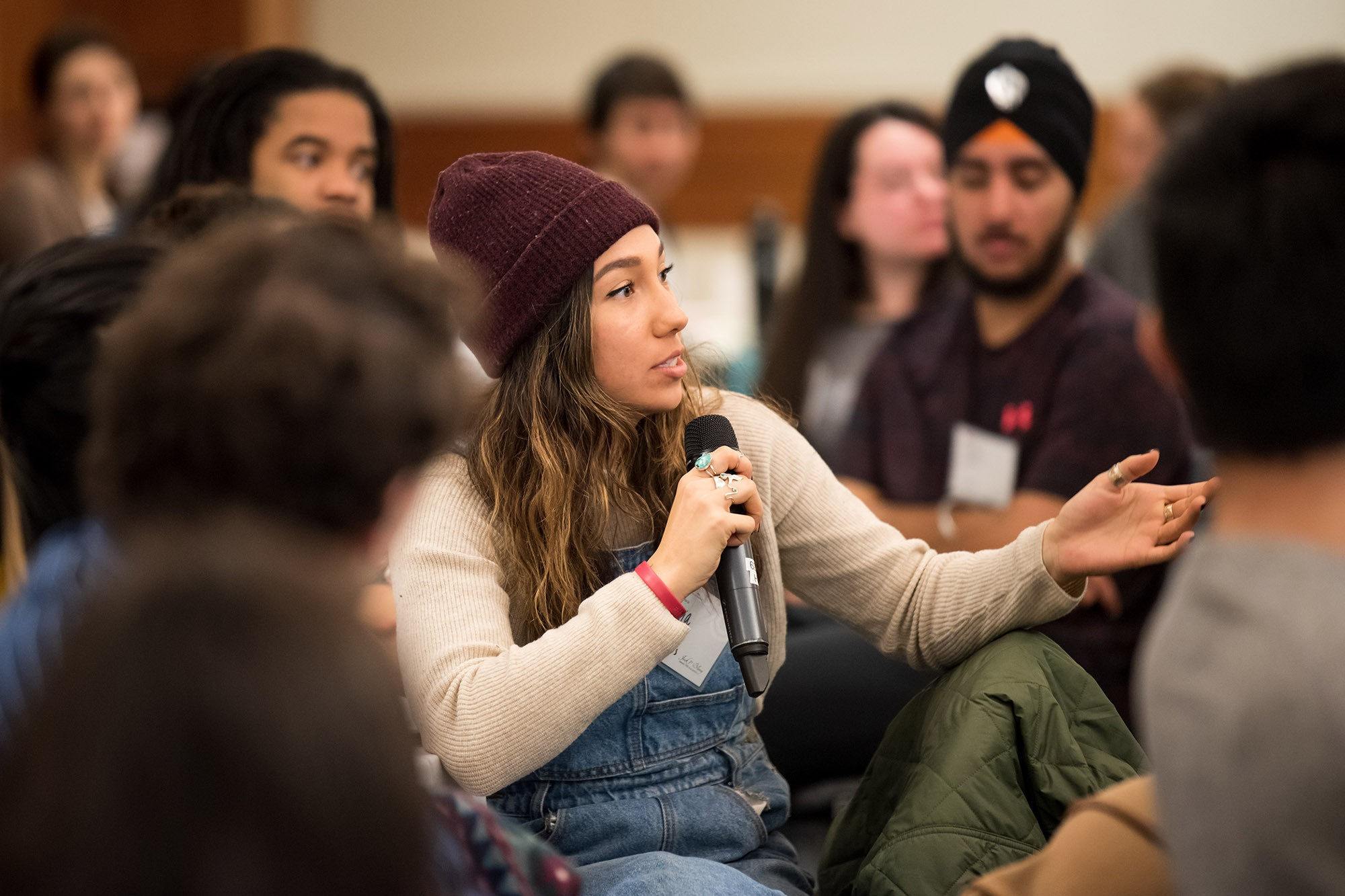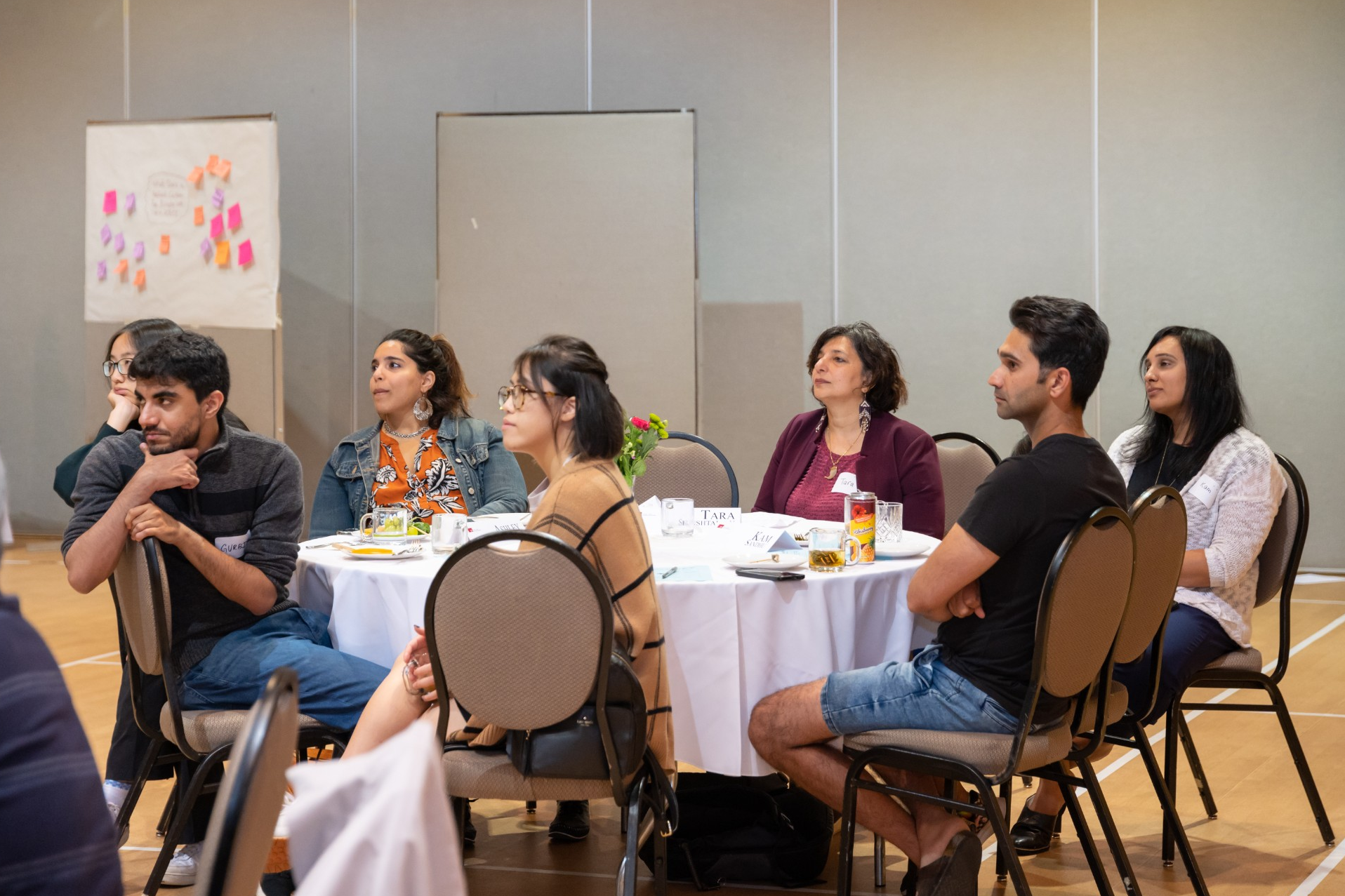- About
- People
- What We Do
- Public Programming
- Initiatives
- When the Map Is Useless
- Cities + Climate
- Mitigating Wildfire
- Moving in a Livable Region
- The Dialogue on Technology Project (DoT)
- Urban Resilient Futures Burnaby
- Action on Climate Team
- Clean Energy Canada
- Hey Neighbour Collective
- New Economy Canada
- Renewable Cities
- Renovate the Public Hearing
- SFU Demshot Challenge
- Signature Events
- Jack P. Blaney Award for Dialogue
- Award Recipients
- 2024/25: Bringing Justice Home with Judge Abby Abinanti
- 2021/22: Reimagining Social Justice and Racial Equity with adrienne maree brown
- 2019/20: Climate Change and Human Rights with Sheila Watt-Cloutier
- 2017/18: Peace, Pluralism and Gender Equality with Alice Wairimu Nderitu
- 2015/16: Climate Solutions with Tim Flannery
- 2013/14: Reconciliation with Chief Robert Joseph
- 2011/12: Twelve Days of Compassion with Karen Armstrong
- 2009/10: Widening the Circle with Liz Lerman
- 2005: Corporate Social Responsibility and the Right to Health with Mary Robinson
- 2002: Environmental Sustainability with Maurice Strong
- Nomination Details
- History of the Award
- Award Recipients
- Bruce & Lis Welch Community Dialogue
- 2026: Economics for the People: Inside Inequality with Mohsen Javdani
- 2024: AI: Beyond the Hype—Shaping the Future Together with Stephanie Dick and Daniel Barcay
- 2022: Facing the Flames: New and Old Ways of Co-Existing with Fire with Joe Gilchrist and Paul Hessburg
- 2021: All My Relations: Trauma-Informed Engagement with Karine Duhamel
- 2019: Power of Empathy with Kimberly Jackson Davidson
- 2019: Rethinking BC Referendums with John Gastil
- 2017: Strengthening Democratic Engagement with Valerie Lemmie
- 2015-16: THRIVE! Surrey in 2030
- 2014: Citizen Engagement and Political Civility with Dr. Carolyn J. Lukensmeyer
- 2013: Building a Culture of Participation with Dave Meslin
- 2012: Riots and Restorative Justice with Dr. Theo Gavrielides
- 2011: Growing Out of Hunger with Will Allen
- 2010: The Age of Unequals with Richard Wilkinson
- Jack P. Blaney Award for Dialogue
- Dialogue Training
- Consulting Services
- Services
- Our Projects
- Burnaby Community Assembly
- Centering Equity and Inclusion in an Engagement Framework
- Framework for Diabetes in Canada
- COVID-19 and Public Health: The Faith and Spiritual Leaders Dialogue Series
- Burnaby Business Recovery Task Force
- CleanBC Job Readiness Workshops
- Your Voice. Your Home.
- Perspectives on Reconciliation
- Establishing a Chinese-Canadian Museum
- Citizen Dialogues on Canada’s Energy Future
- Clients and Partners
- Get in Touch
- Knowledge & Practice
- Shared Learning
- News
- Give
Robin Prest
PROGRAM DIRECTOR
Areas of Focus: Climate Solutions, Democratic Participation, Urban Sustainability
Pronouns: he/him
Email: rjprest@sfu.ca
Robin Prest leads the Democratic Participation and Innovation team at Simon Fraser University’s Morris J. Wosk Centre for Dialogue, where he builds the capacity of governments to co-create solutions and leads public participation initiatives that enhance the legitimacy of institutions, reduce polarization and earn public trust.
Examples of Robin’s programming include co-founding the International Climate Engagement Network to help national and sub-national governments accelerate climate action, leading the Burnaby Community Assembly to create recommendations for the city’s Official Community Plan and co-founding the Mitigating Wildfire initiative to support a whole-of-society response to one of the most serious sources of climate risk and emissions in Canada today. Robin was part of the leadership team for the Citizen Dialogues on Canada’s Energy Future—the first ever cross-Canada deliberative dialogue where a representative body of citizens made recommendations on federal energy policy—which is now included as a micro case study in the OECD’s landmark 2020 report, Innovative Citizen Participation and New Democratic Institutions: Catching the Deliberative Wave.
Robin is a member of Canada’s Multi-Stakeholder Forum on Open Government, and his commentary and programming have been featured in forums such as the Open Government Partnership Global Summit, the United Nations Climate Conference (COP26), The Hill Times, The Globe and Mail, and the Union of BC Municipalities Annual Convention. His current interests include better integrating engagement with governance and decision-making functions, enhancing the role of equity in engagement processes, and designing public participation initiatives as a means to invest in ongoing relationships and capacity.
What is your role at the Centre for Dialogue?
I lead the Centre’s Democratic Participation and Innovation team. Together, we work to advance a vision of a more participatory democratic system, one where people are actively involved in the decisions that affect their lives and where equity in voice is prioritized.
What does dialogue mean to you?
Dialogue means exploring a question together authentically, without a preconceived outcome. Reciprocity is an important part of dialogue, where every participant has something to learn and something to contribute, and where the goals and needs of participants are built into the design from the get-go.
What is a common assumption you'd like to de-mistify?
Conflict is okay as part of the dialogue process. Where conflict occurs, we want to use it as an opportunity to learn and to work towards solutions that meet the needs of all impacted groups.
Affiliated Initiatives
Highlights and Achievements
- Presenter at the Westminster Foundation for Democracy's inaugural Environmental Democracy conference (2022)
- Presenter at COP26 official UNFCCC side event, Tackling climate change needs civil society: insights on public engagement for climate action, United Nations Climate Conference (2022)
- Lead author, Can Public Participation Accelerate the Transition to Net-Zero?: Innovations and Challenges for Advancing the Field of Climate Engagement (2021)
- Co-author, Participatory Systems Change: A Primer (2017)
- Author, Sustaining public confidence through COVID-19 will require leaders who listen, The Vancouver Sun (Dec 13, 2020)
- Co-author, Does a Sense of Belonging Strengthen Democracy?, originally published on Centre for Public Impact Online (2019)




